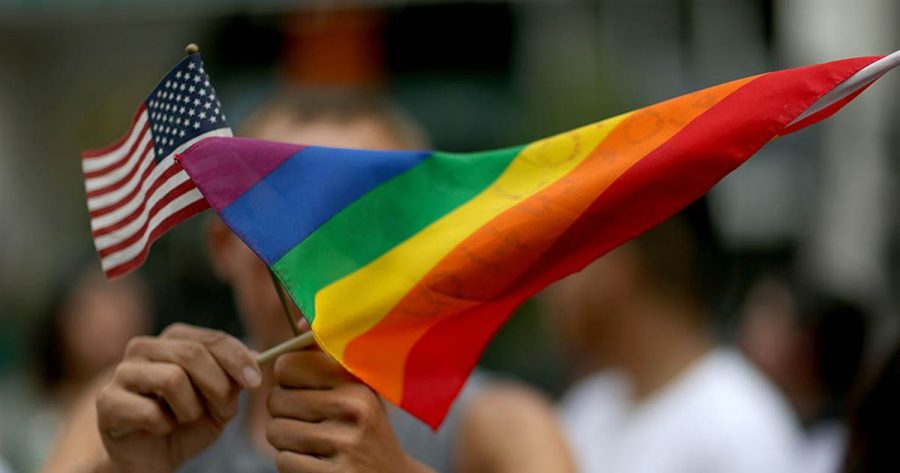The Equality Act passes in House of Representatives
Historic bill to be sent to the Senate
The Equality Act’s next step: getting passed in the Senate.
March 2, 2021
The Equality Act, amending the 1964 Civil Rights Act and the Fair Housing Act, passed the House of Representatives Thursday, Feb. 25 after three Republicans joined the unanimous Democrats that supported the vote, passing 224-206. This bill is historic for the LGBTQ+ community, as it bans discrimination based on sexual orientation and gender identity.
“Equity based on sexual orientation and gender identity is helpful to school, work and home environments,” sophomore Aidenne Despres said. “I agree that discrimination against the LGBTQ+ community can be at least partially stopped by enforcing the Equality Act. There can’t be too much effort in making America a safe place for marginalized groups to live in.”
Republicans who voted against the bill claimed they did so to protect religious freedom, not to discriminate against the LGBTQ+ community. However, the Equality Act would protect religious freedom in places where it is currently legal to discriminate. There is no law against discriminating those who are visibly Christian, Muslim, Hindu, Buddhist, or other faiths.
“The Equality Act is something LGBTQIA+ people have needed for decades and possibly even longer,” sophomore Isabel Thomason said. “It makes me feel safe about my future. I don’t have to worry about who I love or who I am endangering my sense of being, healthcare, or job. I saw the opponents to the bill and, as a religious queer person, I’ve just become frustrated with other religious people hiding behind their religion to justify bigotry, homophobia, and transphobia.”
It makes me feel safe about my future. I don’t have to worry about who I love or who I am endangering my sense of being, healthcare, or job. I saw the opponents to the bill and, as a religious queer person, I’ve just become frustrated with other religious people hiding behind their religion to justify bigotry, homophobia, and transphobia.
— Sophomore Isabel Thomason
Even though opposition of the act is strong among proponents of religious rights, a large portion of religious people support it. 83 percent of Americans approve laws protecting the LGBTQ+ community. One hundred faith-based organizations have stepped up and endorsed the Equality Act.
“I bet if we were living back in the 1960s when the Civil Rights Act was passed, people would be using the same excuses to justify racism and sexism,” Thomason said. “As Americans, we have to realize that not everything revolves around cis straight white men and that we are in fact a mixed bowl of thousands of different colors coexisting to create a beautiful and radiant rainbow.”
Currently, LGBTQ+ people can be evicted, fired and denied service for being themselves. The bill would ban discrimination in areas such as the workplace, housing, health care and education. Twenty seven states do not have LGBTQ+ anti-discrimination laws and this bill would cover them.
“I urge Congress to swiftly pass this historic legislation,” President Joe Biden said. “Every person should be treated with dignity and respect, and this bill represents a critical step toward ensuring that America lives up to our foundational values of equality and freedom for all.”
The Equality Act has passed the House of Representatives, but it now faces the Senate. Bills need a majority vote to pass in the Senate (51 of 100); however, 60 votes would be optimal to avoid obstruction.
The Human Rights Campaign found 25 states as struggling for “basic equality” for LGBTQ+ people in its previous equity review. The Equality Act works for this basic equality by expanding federal protections for LGBTQ people. Following the House vote, Sarah Kate Ellis, president of GLAAD (Gay & Lesbian Alliance Against Defamation) tweeted “It is time to move together to offer LGBTQ people the chance to belong, to participate and to succeed in all areas of American life.”
“It is essential that individuals within the LGBTQ+ community have access to equal resources and opportunities in every aspect of life,” SURE Club LGBTQ+ committee chair Abigail Martin said. “By being able to allow the Equality Act to pass, we are moving towards having greater freedoms for all, which will help many individuals. This would be extremely important to me and many other Americans because personally, I know and love many who would be positively impacted by this act.”
















